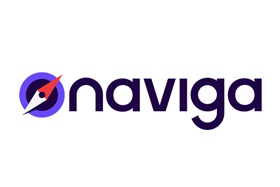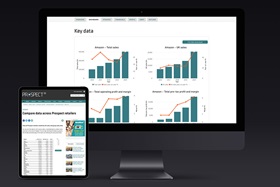The General Data Protection Regulation (GDPR) is without a doubt one of the most popular topics discussed amongst European businesses, with many feeling the strain of the clock’s countdown and trying to get their head around its implications. The associated heavy fines and penalties (TalkTalk for example) have created an atmosphere of near panic where unprepared businesses are doing all they can to upgrade their technology, storage, and processing of customer data to meet the minimum requirements.
The EUGDPR website states that the regulation has been ‘designed to harmonize data privacy laws across Europe, to protect and empower all EU citizen’s data privacy and to reshape the way organizations across the region approach data privacy.’ Effectively, GDPR will level the playing field on personal data acquisition and management by creating a single set of rules that all 28 member states must follow, which also applies to organisations outside the union that wish to do business within the EU. The biggest change revolves around consent and providing transparency for the consumer. An individual must give explicit consent before a business can use any of their personal data, and the business must be upfront and specific about what they plan to use the data for (profiling, sharing with third parties, etc.). Customers will also have ongoing control over their data, including updating their personal information and even withdrawing their consent at any time.
While the pressure is on for all businesses to transform their data management procedures to avoid falling foul under the new regime, responsible customer-centric businesses who closely follow their audience needs and preferences are likely to gain the most from the coming changes.
The good that GDPR will bring
GDPR emphasises the importance of being a responsible data controller and becoming more data-centric, therefore customer-centric, than ever before. And with the Royal Mail and Marketing Week finding that poor-quality data costs brands on average 6-7% of annual revenue, the regulation has sparked encouragement to make it a priority to ensure that your customer data is accurate, up-to-date, and of good quality. Conducting a regular ‘spring cleaning’ of your customer databases has always been an essential step for getting your data in top form – this includes clearing out old data, de-duplicating records and verifying the information you have on your customers is correct. Because GDPR will give consumers the power over their data and the ongoing ability to change/update it, it will become easier for businesses to ensure that they hold good data. And as it is likely your customer data sits in multiple systems across the business, GDPR gives strength to the argument to dynamically consolidate and connect your customer data sources to create a usable Single Customer View (SCV) of their information and preferences.
So, how will GDPR benefit my business? For those that properly embrace the changes and implement the correct data management procedures, research suggests it will strengthen the long-term trust and value relationship between customers and brands, which will then increase overall customer engagement, loyalty and revenue.
There is always greater value in converting anonymous users into known registered users/subscribers/members/etc, and GDPR will likely make this easier for businesses to accomplish, as a recent global survey found that ‘81% of consumers will be more likely to share their personal data once the regulation is in place’. Organisations that are able to provide transparency by effectively communicating how they plan to use their data and convey the benefits they will receive from providing their information are more likely to have inclined customers willing to do business with them. Having the right technology can reduce the likelihood of a data breach and assure customers that their personal data can be stored and processed safely (including providing an audit trail tracking opt-in information) is fundamental to establishing your business as trustworthy and reliable. Demonstrating that your customer’s best interest is at the heart of your business through responsible data management will increase their trust and loyalty in your brand.
The regulation places your customers in the driver’s seat of what communications they receive and how you use their personal information to identify and tailor targeted offers and services. Seen positively, this increased customer awareness and opportunity for active engagement is actually a major opportunity for businesses which is often overlooked. Because individuals are more in control of which responsible organisations they allow to engage their attention, this opens up new opportunities for greater focus on relevance to individual interests and preferences. Accurate real-time data can be utilised to provide trusting consumers with ever more personalised and value-adding experiences that customers expect in today’s digital world – providing them with the right offer at the right place, time and in the right format. On a more strategic level, this data can be used to steer the product development cycle, giving you the ability to create more tailored products which will increase your streams of revenue and provide more value for your customers.
And for those spam merchants – beware!
One thing that is currently daunting for consumers is the vast amount of unwanted and unsolicited communications received on a daily basis. There are days where inboxes are filled with irrelevant messages, and no amount of clutter folders or spam filters seem to be enough. GDPR will eradicate the mass-targeting spam epidemic that has plagued consumers’ inboxes. The stricter rules and fines that will be in place should ultimately act as a deterrent to not send out emails without the consent of the receiver. And for those spammers that don’t follow the rules or try to use the excuse that because they operate outside the EU and feel that they don’t have to comply (which they still do), GDPR has made provisions for dealing with these companies, and even pursuing them through international courts.
How can Abacus help?
Our platforms have been designed to create a highly personalised and intuitive user experience to engage your audience through the collection of real-time data, including web activity. This can be used for sophisticated audience segmentation to deliver highly targeted content, products, services, advertising and marketing messages throughout the user journey. They have also been architected to enforce data protection compliance (DPA and GDPR) and provide an audit trail of customer interactions with your organisation, so the benefits of all personalised service can be delivered confidently with transparent purpose-driven consent.
To learn how our platforms can help your organisation become compliant with the new regulations please get in touch.




